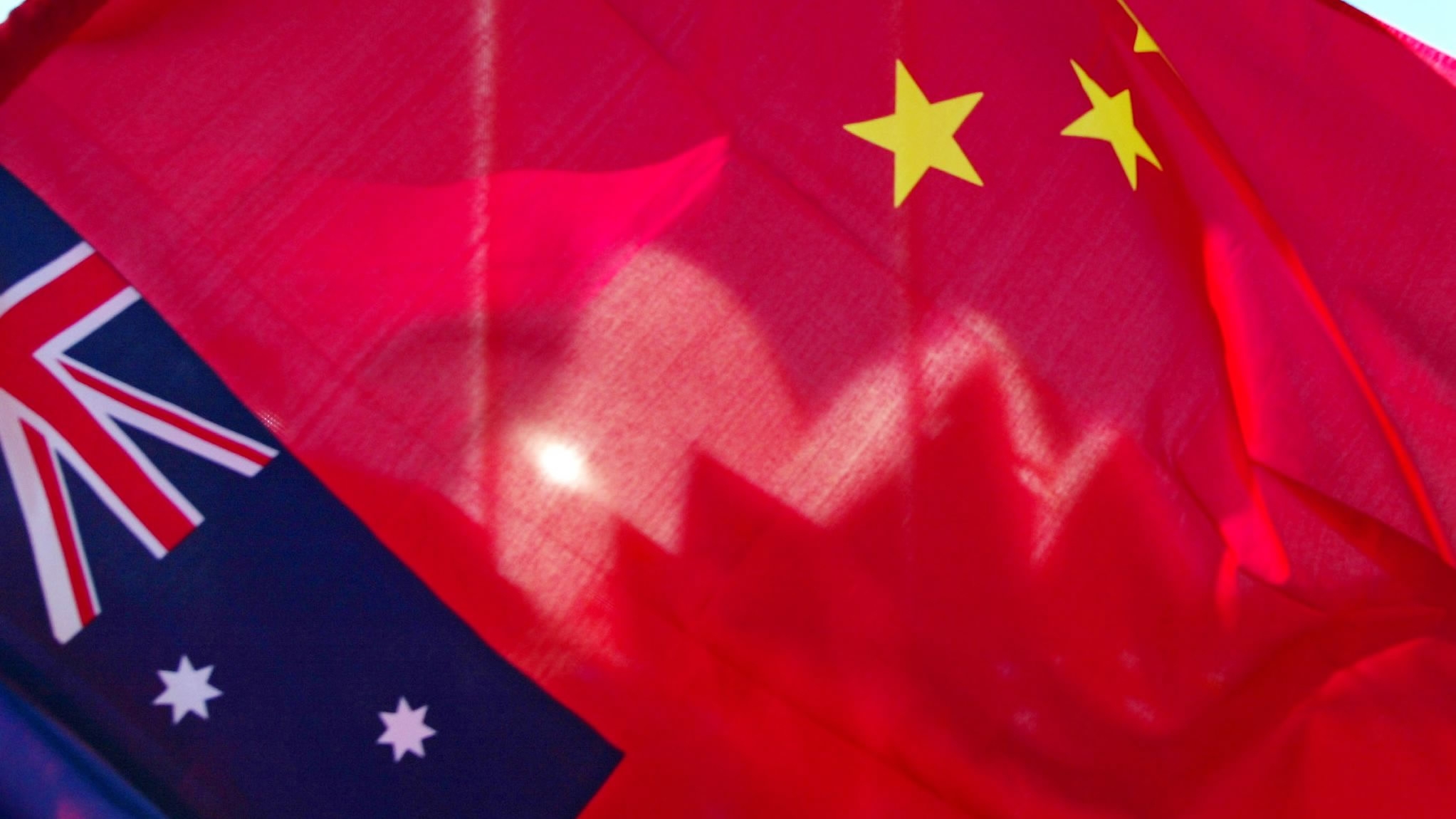There’s a silent Chinese revolution taking shape on Australian campuses.
Perturbed by the way issues concerning China are portrayed in Australian universities, Chinese students are routinely complaining about course materials and Western teaching methods and ideas, which they consider to be “incorrect” or “insulting” to their homeland.
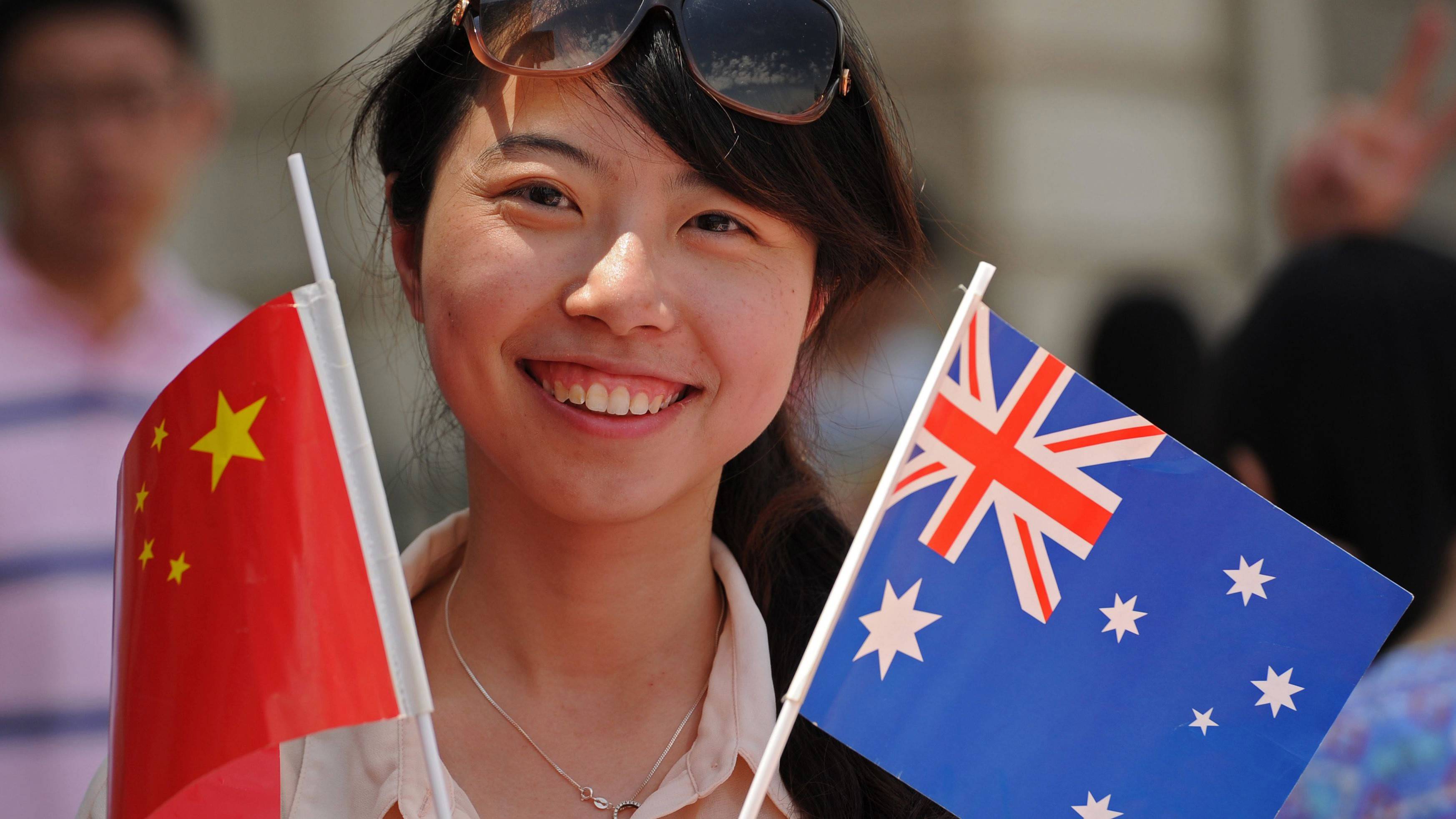
A woman holds Chinese and Australian national flags as she waits to catch a glimpse of China's President Xi Jinping (not seen) as he drives by during the G20 Summit in the Australian city of Brisbane on November 16, 2014. /AFP Photo
A woman holds Chinese and Australian national flags as she waits to catch a glimpse of China's President Xi Jinping (not seen) as he drives by during the G20 Summit in the Australian city of Brisbane on November 16, 2014. /AFP Photo
At least four instances have been reported where Chinese students have fiercely protested against the “objectionable” teaching materials.
In the most recent such cases, a Chinese student at Australia's University of Newcastle posted a YouTube video that shows him arguing with a professor who referred to Taiwan and Hong Kong as independent countries.
“You are making us feel uncomfortable,” the student is heard saying to the professor. “You have to consider all the students.”
To which, the professor is seen responding: “Exactly, all the students, not one set of students.”
Uproar on social media
Sydney Today, a local Chinese language website, posted the video, which soon started trending on social media. The video was subsequently shared on several Chinese websites and social media platforms eliciting furious response from the youth.
“Politics shall not be played out in [university] classrooms. This is a basic requirement. The professor’s version is a distortion of facts,” commented @Anzhoudaigou_shuigugu on Chinese microblogging website Weibo, in response to the professor’s claim that Hong Kong and Taiwan were sovereign countries.
“If Taiwan were a country, why has your country not established diplomatic relationship with Taiwan,” @LZHahaha questioned the professor in another Weibo post.
University on backfoot
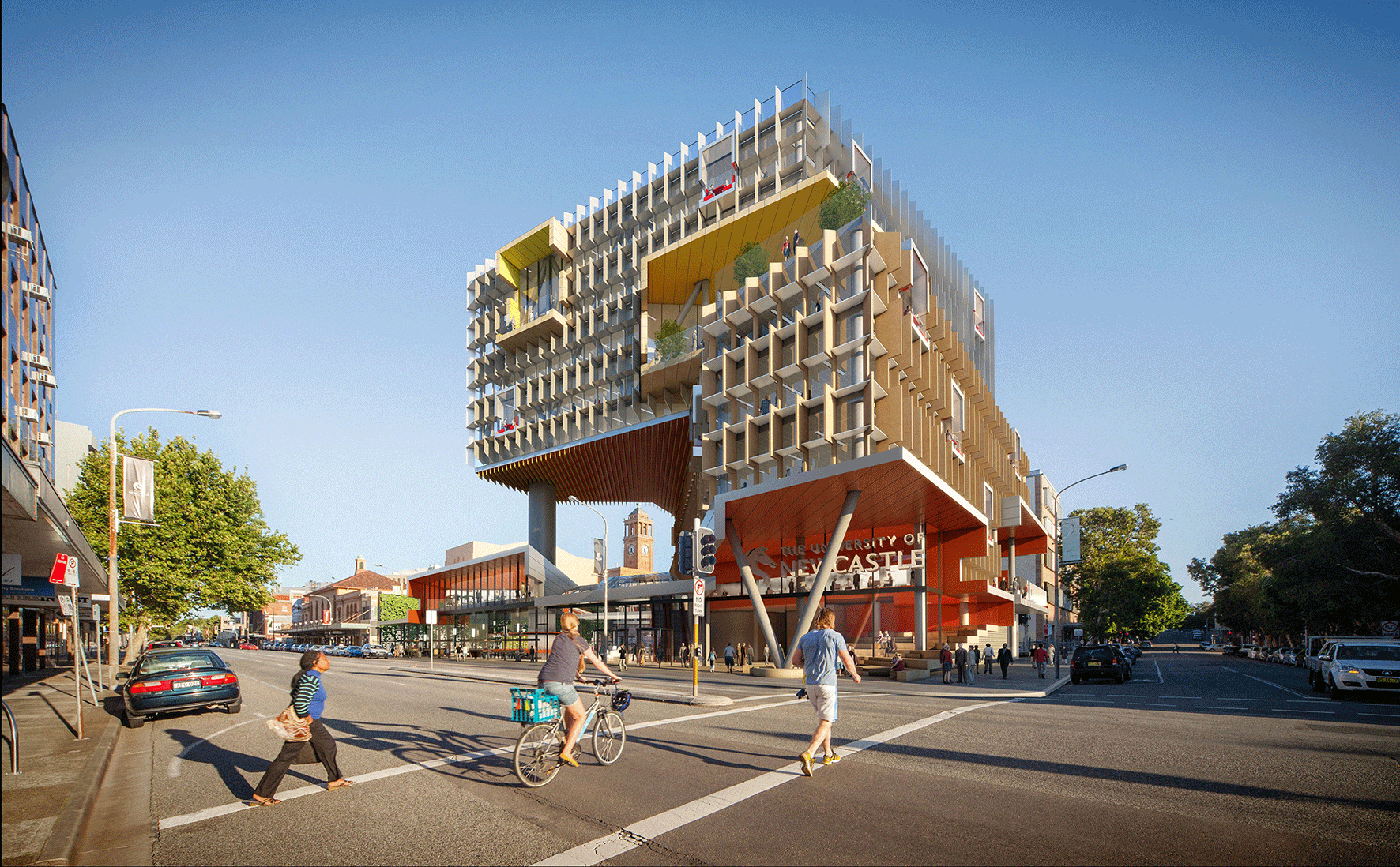
The University of Newcastle /Photo www.newcastle.edu.au
The University of Newcastle /Photo www.newcastle.edu.au
Following the uproar in social media, the University of Newcastle issued a statement explaining that the course materials referenced a report by Transparency International, which had used the word "country" to describe both countries and territories.
The university said it expected staff and students to respect cultural differences and sensitivities, and that it was disappointed that a video had been covertly recorded and leaked.
Australian media reported that the New South Wales-based university also contacted China’s consulate-general in Sydney to resolve the matter. However, there has been no official confirmation either from the Chinese consulate-general in Sydney or from the University of Newcastle regarding this.
This didn’t stop The Australian newspaper alleging that there’s an “increasing influence exerted by Beijing on Australian university campuses.”
"Pushback against injustice"
Many observers have rubbished these unfounded claims reported in the Australian media.
Although known for her uncharitable views on China, even Merriden Varrall, East Asian director of the Sydney-based think tank Lowy Institute for International Policy, found the suggestions that Chinese mission is somehow influencing students in Australia to be far-fetched.
“I don’t think it’s about the Chinese embassy saying do this, act in this way. That’s out of the question, but it certainly reflects students’ beliefs,” she was quoted as saying by the news.com.au.
Varall added that there was “certainly an increase” in the “willingness of Chinese students to stand together and push back against what they perceive as injustice” in Australia.
She said many of these students had a strong sense of territoriality and sovereignty and believed their country had been victimized by the outside world for years. Issues such as whether Taiwan should be an independent country – it currently is not – are very “emotional” for them, she told news.com.au.
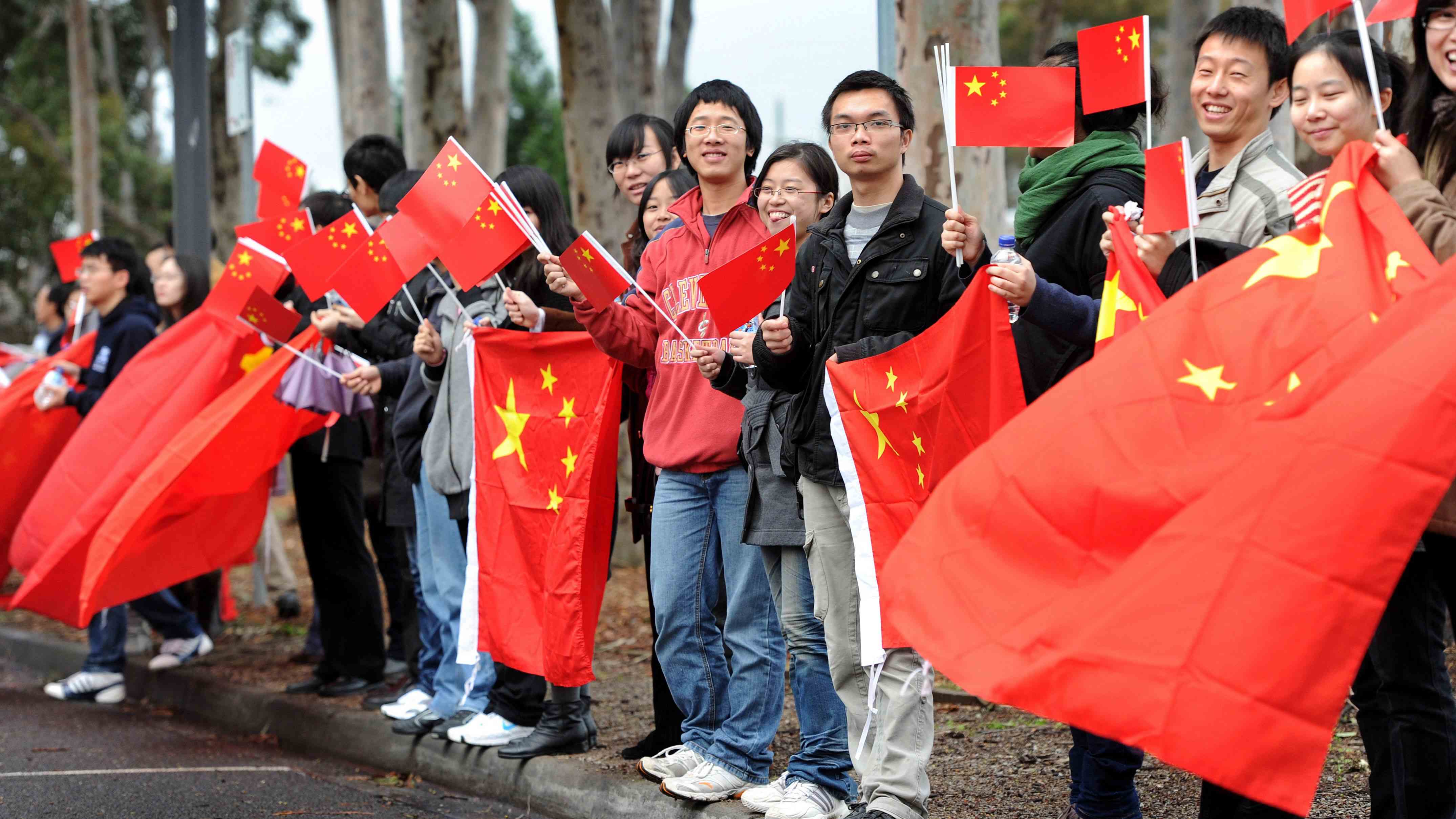
Chinese consular staff wave national flags during the inauguration of Australia's first Chinese Medicine Confucius Institute, at the RMIT University in Melbourne, on June 20, 2010. The institute was inaugurated by China's then Vice President Xi Jinping. /AFP Photo
Chinese consular staff wave national flags during the inauguration of Australia's first Chinese Medicine Confucius Institute, at the RMIT University in Melbourne, on June 20, 2010. The institute was inaugurated by China's then Vice President Xi Jinping. /AFP Photo
Earlier in July, Varrall had described Chinese international students "a threat to Australian openness."
Many Chinese netizens indeed expressed their “emotions” quite emphatically, by seeing a global conspiracy in the whole affair.
“To say the truth, others [countries] are complaining a lot [against China] because we (China) are getting stronger,” said @Woyongshinianxiangqingchuyijianshi
"[Anti-Chinese people’s] goal is to break Sino-Australian relationships,” commented @Cehuarenxiayu.
“People who discriminate against Chinese are poor, lazy and the underclass,” quipped @Lang_wuzhituteng.
Previous campus incidents
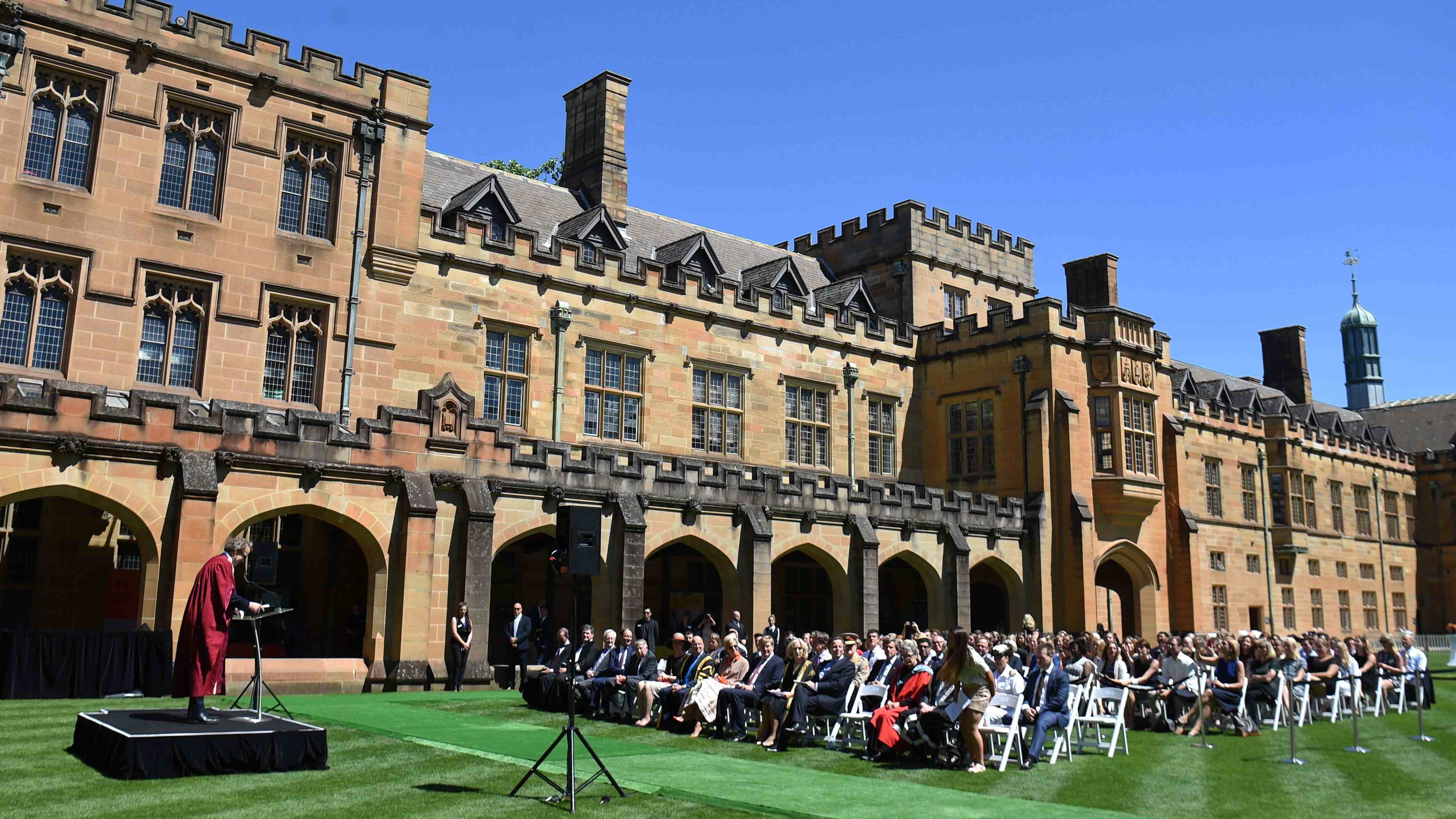
University of Sydney Principal Professor Duncan Ivison (L) welcomes King Willem-Alexander and Queen Maxima of the Netherlands (front row center) on the campus of the University of Sydney, November 3, 2016. /AFP Photo
University of Sydney Principal Professor Duncan Ivison (L) welcomes King Willem-Alexander and Queen Maxima of the Netherlands (front row center) on the campus of the University of Sydney, November 3, 2016. /AFP Photo
Days before the Newcastle University incident, a Chinese website reported that students at the University of Sydney were outraged at IT professor Khimji Vaghjiani displaying a map showing three regions contested by China and India as being part of India.
Vaghjiani had to later issue a statement of apology, clarifying his position: “Over 18 months ago, I used an out-of-date map, downloaded from the Internet... I was unaware that the map was inaccurate and out-of-date. This was a genuine mistake and I regret any offence this may have caused,” reported the news.com.au.
Last month, an Australian National University academic came under fire on Chinese social media for writing a warning against cheating in English and Chinese. The warning was interpreted as targeting Chinese students unfairly. The professor later wrote a lengthy apology, calling it a “poor decision” and adding that he was “not sensitive to how some people would interpret it.”
In May, an Australian lecturer at Monash University was suspended after Chinese students found a test question that joked that their country’s officials only tell the truth when they are “drunk or careless.”
Routine vilification
Chinese students have been under regular attack in recent times in Australia with wild insinuations even suggesting they operate as spies.
Earlier this June, an ABC-Fairfax report claimed that Beijing is manipulating the Chinese community in Australia, including Chinese students and Chinese-language media, to enlarge its influence in the country and "pose a direct threat to our nation's liberties and its sovereignty."
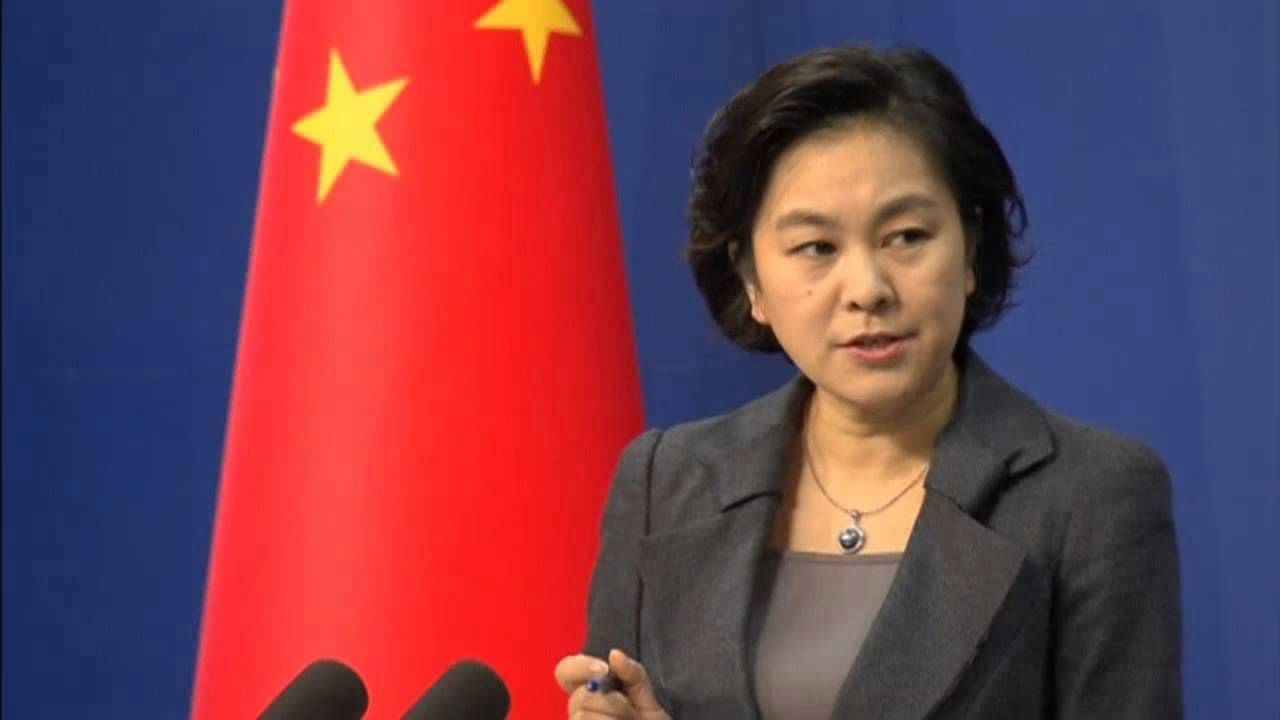
Chinese foreign ministry spokesperson Hua Chunying. /Xinhua Photo
Chinese foreign ministry spokesperson Hua Chunying. /Xinhua Photo
The Chinese foreign ministry immediately slammed the Australian report calling it baseless and “not even worth refuting.”
"There is no basis for the related claim, which is extremely irresponsible and isn't worth refuting," Chinese foreign ministry spokesperson Hua Chunying had said.
"China urges related Australian media to abide by professional ethics of journalism, discard ideological bias, and do objective and fair reports on China's development and Sino-Australian ties," Hua said.
"I haven't seen the program, but I'm really surprised to be told that Chinese students are part of the threat to Australian sovereignty," Charlie Liu, 28, a Monash University graduate who has been living in Australia for six years, told Global Times.
China sends the largest number of international students to Australia.
According to figures released by Australia's Department of Education and Training this May, some 480,092 international students were enrolled in Australia in March 2017, of which about 280,000 were on university courses.
Of these, 30 percent of the international students were from China, 11 percent were from India, while Malaysia, Vietnam and Nepal each accounted for 4 percent, generating 22.4 billion Australian dollars in income for the economy.
The growth in student numbers was highest among Chinese students, with numbers rising from 20,000 to 140,000 (17 percent) between March 2016 and March 2017.
(With inputs from Sun Xiao)

